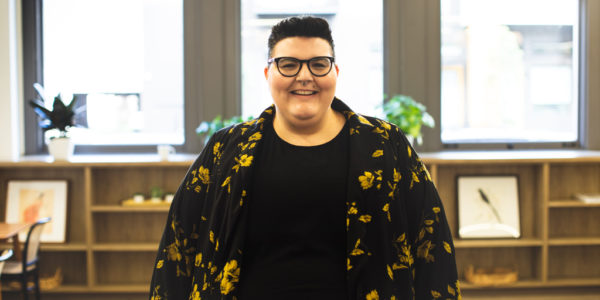We all think of ourselves as inclusive and open-minded people. What can you do to work on boosting how you see, understand and respect others?
We’re sure you believe that everyone is equal and that you should treat everyone well regardless of their race, gender, age, sexual orientation, or any other characteristic. And that’s a great start!
But becoming truly inclusive is actually a little more complex. It’s also not a one-and-done action, but a constant process of learning and working at it. Here are a few strategies you can use to evaluate how inclusive you are and to broaden your perspective at work, at school, and in life.
Understand unconscious bias
Few people would think of themselves as biased. However, we all have unconscious bias of varying kinds and degrees. Ignoring it or pretending it doesn’t exist is a mistake. Instead, we should strive to understand how it works and fight it more proactively.
According to Vanderbilt University, “Unconscious bias (or implicit bias) is often defined as prejudice or unsupported judgments in favor of or against one thing, person, or group as compared to another, in a way that is usually considered unfair.”
A few ways to push back against unconscious bias include:
- Avoid making snap judgements (or if you do, take the time to pause and reconsider them before making any decisions.)
- Avoid assumptions or gut instincts when making decisions, especially those that impact other people.
- Deliberately use inclusive language (such as “everyone” instead of “ladies and gentlemen”.)
- Use counter-stereotypic imaging. Next time you realise you’ve made a judgement based on unconscious bias, imagine (or seek out images of) a person who counteracts those stereotypes.
We shouldn’t be afraid of unconscious bias, but we must be willing to question it and work to realign our assumptions.
Engage with inclusivity training more fully
Many of us view workplace or school diversity and inclusion training as a box-ticking exercise. This is a mistake, though! If you get any training like this, see it as a real opportunity to learn and become the type of inclusive person you’d like to be. Good inclusion training can introduce you to new ways of thinking and allow you to understand your colleagues and yourself in different ways.
So instead of inwardly groaning or going through the motions, engage with the training completely next time it comes around.
Consider the questions in depth, examine your reactions to them, and try to put yourselves in others’ shoes.
Learn from diverse voices
- When you’re seeking input on a problem, do you tend to gravitate towards people like you?
- If you were seeking a mentor at work, what sorts of people would you automatically look to?
Pause and question those initial reactions and ask yourself if the people you immediately think of are really the best or only people you could learn from. Chances are, they might not be!
Aim to get support, insights, and opinions from a wider range of people, including those whose perspectives are nothing like yours. You might think they have nothing to offer you, but the opposite is true. A person with a completely different background or context might have just the solution you need.
Broaden your media consumption
Becoming more inclusive isn’t just something you do at work, school, college, and uni. You can also work towards it in your free time. One of the best ways to develop a more inclusive perspective is to broaden the range of media you consume.
Whether you love books, films, TV shows, podcasts, or video games, look for work by creators who have different experiences and backgrounds to yours. Who knows – you might just discover a fabulous bingeworthy series you’d never otherwise have tried, or stumble across your new favourite author!
Ask instead of assuming
Be aware that you can’t always know how someone else would like to be treated. Are you making assumptions about someone’s preferences or needs based on a particular characteristic? If you’re not sure, the best solution is often to ask.
For example, perhaps you have a transgender or non-binary colleague and you’re not sure of the best way to refer to them. A good question might be, “what pronouns should I use for you?”
Or perhaps you’re arranging a team meeting and one attendee is Deaf. You might ask, “is there anything you need to ensure you can fully participate in this meeting?”
And once you’ve asked, really listen to the answer. It might surprise you. Remember that people are the experts on themselves and best placed to know what they need.
Learn, learn, and learn
Nobody is perfect, and that certainly applies when it comes to diversity and inclusion. Don’t be tempted to think “I’ll never get it right” and stop trying. The most important thing is to learn, improve, and try to be better than the person you were yesterday.
Remember that inclusivity is a journey. We are all on that journey together. Every time you take an action to be a little more inclusive, you make the world a kinder and more welcoming place. And that really matters.








